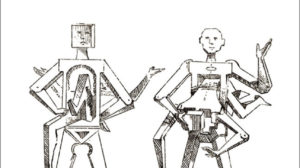Un’inchiesta, fatta da gente che tiene al metodo giornalistico come Mark Lee Hunter (Insead, Social Innovation Centre) per la Francia, è stata finanziata da Greenpeace per verificare se la politica agricola europea favorisca l’inquinamento. E i risultati non sono gradevoli.
La ricerca è concentrata sulla produzione di ammoniaca nell’allevamento. In pratica, si scopre che l’Europa finanzia anche le aziende agricole che producono vaste quantità di ammoniaca, un veleno per l’ambiente, e non si impegna a cambiare la situazione.
Ecco le sue raccomandazioni:
“1. Establish a complete and regularly updated database of farm emissions of ammonia, starting from a value of 1,000 kg per year;
2. Ensure that the CAP specifically contributes to reducing ammonia emissions, by:
a. encouraging the reduction in the number of animals raised, particularly in regionsalready intensively farmed;
b. encouraging the adoption of extensive systems favouring outdoor grazing;
c. incentivising the adoption of better housing systems that both improve animalwelfare and lower emissions of pollutants, ensuring covered outdoor space foranimals and effective manure management;
3. Ensure a tight implementation of the Nitrates Directive at national level, promoting theadoption of manure management technologies that minimise ammonia emissions, suchas by limiting the time between manure applications and tilling;
4. Ensure that all farms have a complete ‘nutrient balance sheet’, taking stock of how muchfeed, manure, and any other nutrients enter and leave the farm, in order to avoid therelease of pollutants in excess of what the environment can absorb;
5. Make sure that CAP payments are fully transparent and records are freely accessible tothe public in all member states”.
Investigation: How CAP promotes pollution
In Francia…
Per Lee Hunter è un nuovo modo, non il migliore possibile ma un buon modo, per fare inchieste. Ne parla nel libro: Power is Everywhere (Il libro offre una discussione sui media che servono gruppi di pressione che operano in nome della comunità di interessi: gli autori sostengono che questi media continueranno a proliferare e che saranno un veicolo sempre più potente per un giornalismo sostenibile e basato sui fatti).






Commenta